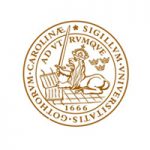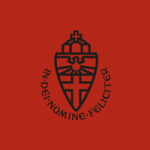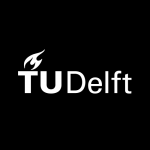项目介绍
Lund University was founded in 1666 and is repeatedly ranked among the world’s top universities. The University has around 47 000 students and more than 8 800 staff based in Lund, Helsingborg and Malmö. We are united in our efforts to understand, explain and improve our world and the human condition.
Lund University welcomes applicants with diverse backgrounds and experiences. We regard gender equality and diversity as a strength and an asset.
The Department of Computer Science, Faculty of Engineering, Lund University, is currently accepting applications for a fully funded PhD position, starting at the earliest convenience. We are seeking a candidate with a keen interest in Robotics, Intelligent Autonomous Systems and Machine Learning, focusing specifically on robot task learning and skill representation for dual-arm robot tasks.
Description of the workplace
The position at Lund University’s Dept. of Computer Science is supervised by Prof. Volker Krueger and Assoc. University Lecturer Maj Stenmark, within the Robotics and Semantic Systems (RSS) division. RSS is the division with research and teaching in AI, Machine Learning, Robotics and Robotic Learning, Human-Robot Interaction, and Natural Language Processing. Together with the Dept. of Automatic Control, the division operates RobotLab LTH, which gives access to many types of robots.
More information about the Department of Computer Science (cs.lth.se)
More information about RSS (rss.cs.lth.se)
More information about RobotLab LTH (robotics.lth.se)
The focus of the PhD project will be on how to simplify programming of dual-arm manipulation, specifically investigating synchronised bimanual tasks with multiple contact points, inspired by a giftwrapping scenario (youtube.com). The video shows an example of a manually programmed robot task that we want to automate using skills. We will explore the latest developments in Robot Transformers and Large Language Models and you will be able to test your results not only in the robot lab but also at collaborating companies such as Tetra Pak.
You will be working in a team with other PhD students, and visits to partner universities such as MIT or Berkeley are possible.
The project is funded by WASP and connected to the WASP Research Arena “Robotics”, providing ample opportunity for data collection and result demonstrations in addition to our own facilities at Lund University.
Subject description
Human-centric environments are generally designed for humans with two arms, and even the simplest tasks such as carrying a tray or playing lego is very challenging with only one arm. Interestingly, most industrial robots, with the notable exception of the ABB robot YuMi or Baxter, have only one arm, and programming them not only requires special tricks such as fixtures and custom-made grippers, and some tasks, e.g. handling flexible materials, are almost impossible to do with one arm. Reusable robot programs, so-called robot skills, are currently limited to single-arm robots. The goal of this project is to extend existing skill representations, including related techniques such as behaviours trees, to support fast and easy programming of dual-arm robot skills and tasks.
Work duties
The main duties of doctoral students are to devote themselves to their research studies which includes participating in research projects and third cycle courses. The work duties also include teaching and other departmental duties (no more than 20%).
In addition to these general duties, you are expected to:
- Participate in WASP’s graduate school activities (courses, study trips, national events and conferences, etc), which includes regular travel.
- Participate in activities (data collection, demonstration, integration) in the WASP Research Arena “WARA-Robotics”.
- Engage in the division’s internal activities (seminar series, reading groups, etc).
- Contribute to the department’s and division’s efforts in undergraduate teaching.
Admission requirements
A person meets the general admission requirements for third-cycle courses and study programmes if he or she:
- has been awarded a second-cycle qualification, or
- has satisfied the requirements for courses comprising at least 240 credits of which at least 60 credits were awarded in the second cycle, or
- as acquired substantially equivalent knowledge in some other way in Sweden or abroad.
A person meets the specific admission requirements for third cycle studies in Computer Science if he or she has:
- at least 60 second-cycle credits at an advanced level with relevance for the research topic, or
- an MSc in Engineering in Computer Science and Engineering, Electrical Engineering, Information and Communication Technology, Engineering Physics or Engineering Mathematics.
Additional requirements:
- Very good oral and written proficiency in English.
- Strong analytical skills
- Good mathematical skills
- Top grades in Machine Learning
- Knowledge and experience of Python and Linux
- Very good and practical knowledge in ROS
- Very good and partical knowledge in Machine Learning, especially deep learning
- The ability to work both independently and in small teams
Assessment criteria
Selection for third-cycle studies is based on the student’s potential to profit from such studies. The assessment of potential is made primarily on the basis of academic results from the first and second cycle. Special attention is paid to the following:
Knowledge and skills relevant to the thesis project and the subject of study.
An assessment of ability to work independently and to formulate and tackle research problems.
Written and oral communication skills
Other experience relevant to the third-cycle studies, e.g. professional experience.
Other assessment criteria:
- Good coding and implementation skills.
- Very good and pratical knowledge in computer vision.
- Pratical experience in working with robots.
- Knowledge of SkiROS.
- Experience with Transformer models and their applications to computer vision and robotics.
Consideration will also be given to good collaborative skills, drive and independence, and how the applicant, through his or her experience and skills, is deemed to have the abilities necessary for successfully completing the third cycle programme.
We offer
Lund University is a public authority which means that employees get particular benefits, generous annual leave and an advantageous occupational pension scheme. Read more on the University website about being a Lund University employee Work at Lund University.
Terms of employment
Only those admitted to third cycle studies may be appointed to a doctoral studentship. Third cycle studies at LTH consist of full-time studies for 4 years. A doctoral studentship is a fixed-term employment of a maximum of 5 years (including 20% departmental duties). Doctoral studentships are regulated in the Higher Education Ordinance (1993:100), chapter 5, 1-7 §§.
Instructions on how to apply
Applications shall be written in English and include a cover letter stating the reasons why you are interested in the position and in what way the research project corresponds to your interests and educational background. The application must also contain a CV, degree certificate or equivalent, and other documents you wish to be considered (grade transcripts, contact information for your references, letters of recommendation, etc.).
Welcome to apply.
LTH is Lund University’s Faculty of Engineering. At LTH we educate people, build knowledge for the future and work hard for the development of society. We create space for brilliant research and inspire creative advancements in technology, architecture and design. We have nearly 10,000 students. Every year, our researchers – many of whom work in world-leading profile areas – publish around 100 theses and 2 000 scientific findings. In addition, many of our research and degree projects are transformed into innovations. Together we explore and create – to benefit the world.
联系方式
电话: +46 (0)46 222 0000相关项目推荐
KD博士实时收录全球顶尖院校的博士项目,总有一个项目等着你!





